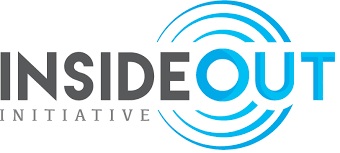
Research Team Submits Article on Social and Emotional Competencies in High School Sport
Drs. Stephen Hebard and Lindsey Oaks lead a research team in authoring “Transformational Coaching and Leadership: Athletic Administrators’ Novel Application of Social and Emotional Competences in High School Sport." The article has been submitted to the Journal for Innovative Teaching and Learning.
The research is based on the work done in partnership with The InSideOut Initiative. A synopsis of the article is below.
OVERVIEW
High school sport is typically perceived as an extracurricular opportunity for positive personal student physical (e.g. strength, flexibility) and character (e.g. grit, discipline) development. However, sport participation is also linked to adverse physiological effects and psychological risk factors associated with an athlete’s unique experience and environmental context. Positive and negative effects of sport are mediated by several unique factors attributed to the sport, including the coach-athlete relationship. The quality of this relationship can be directly responsible for the beneficial or potentially deleterious developmental effects of a student-athlete’s participation in sport. Athletic administrators’ beliefs, attitudes, and subsequent behaviors reflect their behavioral expectations for coaches and have significant influence on perceptions of an athletics program’s climate. As such, their endorsement of positive coaching behaviors is necessary for coach adoption, implementation, and sustainability of these approaches. One well-researched and effective approach to positive youth development is social and emotional learning (SEL), which is a framework for promoting personal development, social relationships, ethical behavior, and productive work. In this study, athletic administrators describe their participation and application of the InSideOut Initiative (ISOI), a systems-level, SEL-based intervention that aligns athletic administrator and coach behavior and promotes a positive sport climate through “transformational coaching.” As such, athletic administrators’ perception that transformational coaching embodies the primary tenets of SEL is critical to arguing for its potential impact on student-athletes.
STUDY DESIGN
Researchers at Prevention Strategies and The Institute to Promote Athlete Health and Wellness teamed up with NORC and the InSideOut Initiative to conduct semi-structured interviews of ten ISOI-trained athletic administrators. Interviews were developed to capture the lived experiences of applying SEL-based, transformational coaching and leadership within their respective high school athletics programs. Athletic administrators described their experiences in leadership, as coaches, and as student-athletes themselves when applicable.
RESULTS
Qualitative analysis of interviews of ISOI-trained athletic administrators described leadership and coaching characterized by a) safety, support, and mentorship; b) skill and support-based behavior modeling; c) trusting, loving, and supportive relationships; d) self-reflection of values/beliefs and behaviors that impact self, student-athlete, and culture; e) the influence of emotions on the aforementioned; f) the ability to have a long-term, sustainable impact on student-athletes; and g) alignment with their immediate environmental context.
In sum, the data suggests ISOI-trained AA’s are practicing SEL-competent leadership and coaching. Additional evaluation of the novel application of SEL-based interventions in athletics will be useful to understanding their effects on social and emotional competencies and other outcomes traditionally associated with classroom-based SEL applications.
AUTHORS
Hebard SP, Oakes LR, Davoren AK, Milroy JJ, Redman J, Ehrmann J, Wyrick DL.